Accelerated weathering using Natural Sunlight Concentrator technology is a great way to combine the benefits of outdoor and laboratory testing. Testing with Q-Lab’s Q-TRAC Solar Concentrators delivers five times the ultraviolet (UV) light of natural outdoor testing, while still using actual sunlight as the light source.
Q-TRAC Natural Sunlight Concentrator
Q-Lab Arizona Desert Testing features one of the world's largest desert sites for accelerated outdoor exposures, featuring our Q-TRAC natural sunlight concentrator systems. Testing durable materials using real, full-spectrum sunlight is fast, economical, and easy.
In honour of the fivefold increase in UV light the Q-TRAC delivers, here are five great reasons to consider natural sunlight testing with Q-Lab.
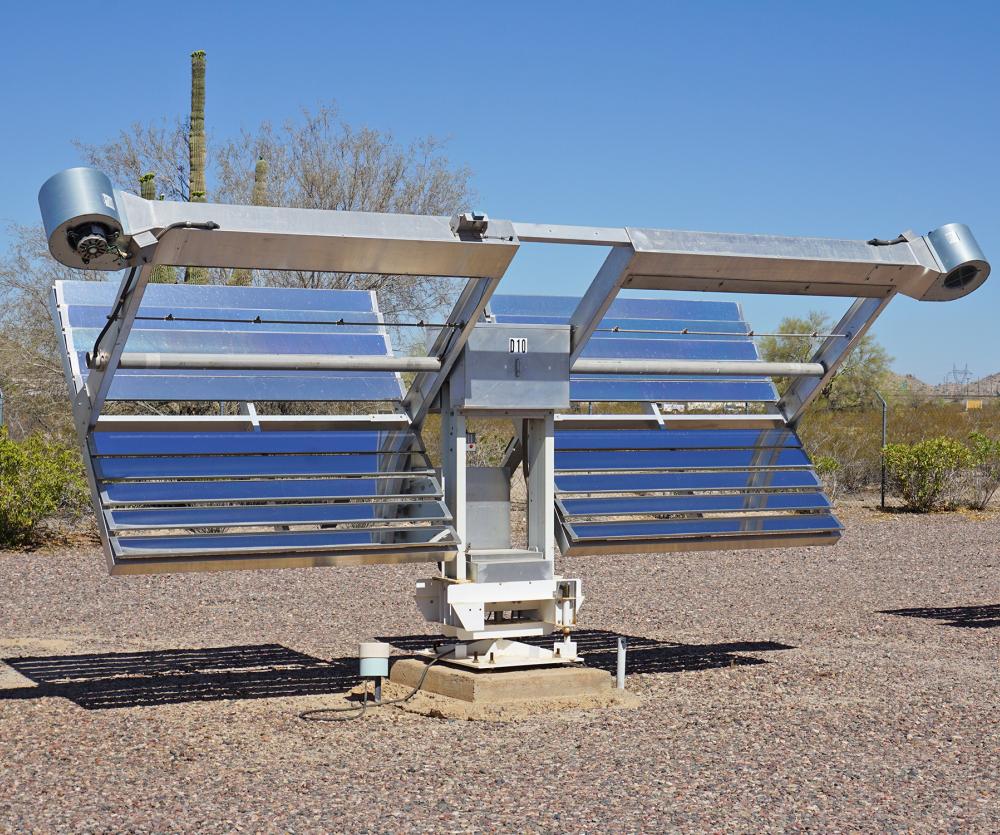
Super-Fast Results from Natural Sunlight
Q-TRAC natural sunlight concentrator testing gives accelerated results like laboratory testers, but instead uses actual sunlight as the light source. It is exceptionally useful for highly durable materials with exceptionally long lifetime expectations.
The Q-TRAC system uses an array of 10 mirrors to reflect and concentrate full spectrum sunlight onto test specimens. The Q-TRAC system also automatically tracks the sun throughout the day in both azimuth (horizontally) and elevation (vertically). The combination of mirrors and tracking maximizes the amount of solar exposure that your test specimens receive.
The Q-TRAC solar concentrator also has a water spray system that can perform cycles that simulate Florida weathering, or create thermal shock. Additionally, specimens are oriented facing up during night-time wetting to give increased time of wetness and enhanced realism, compared to historical natural sunlight concentrator testing. Q-Lab also now offers temperature-controlled Q-TRAC testing for more heat-sensitive specimens.
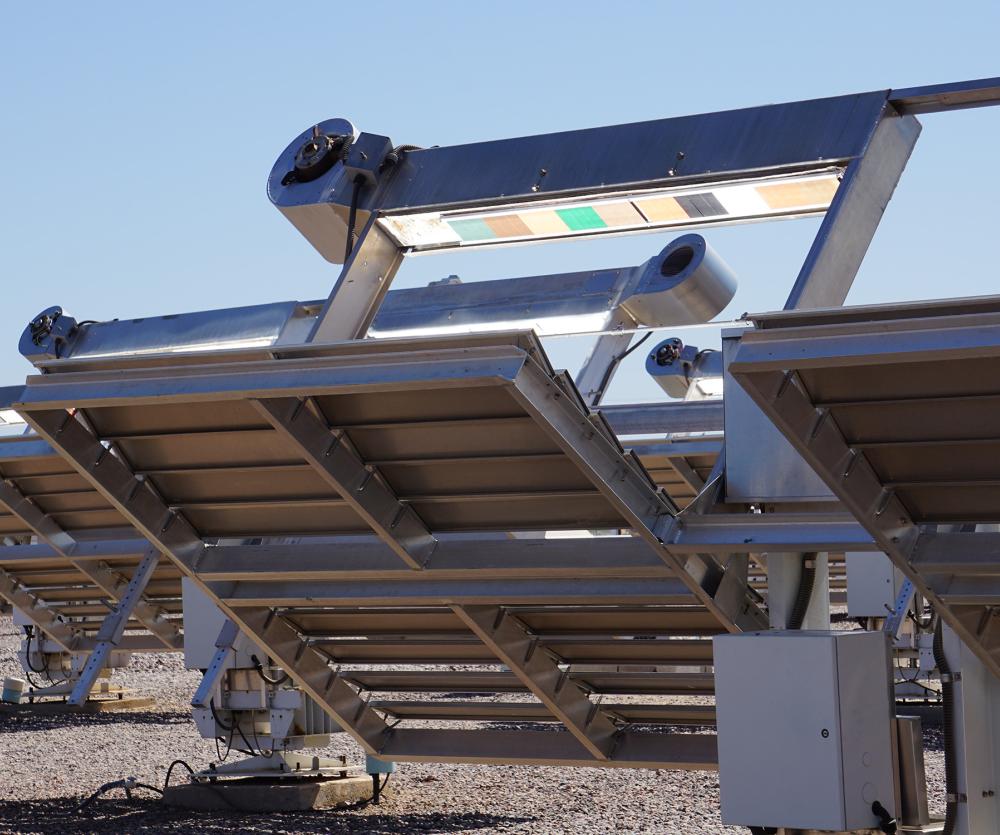
Enhanced UV
Materials tested on the Q-TRAC solar concentrator system are exposed to much more sunlight than those on a conventional outdoor exposure rack. A test specimen mounted on the Q-TRAC tester receives an average of 5 times more UV than it would in Florida, because of the tracking and intensifying effect of the mirrors.
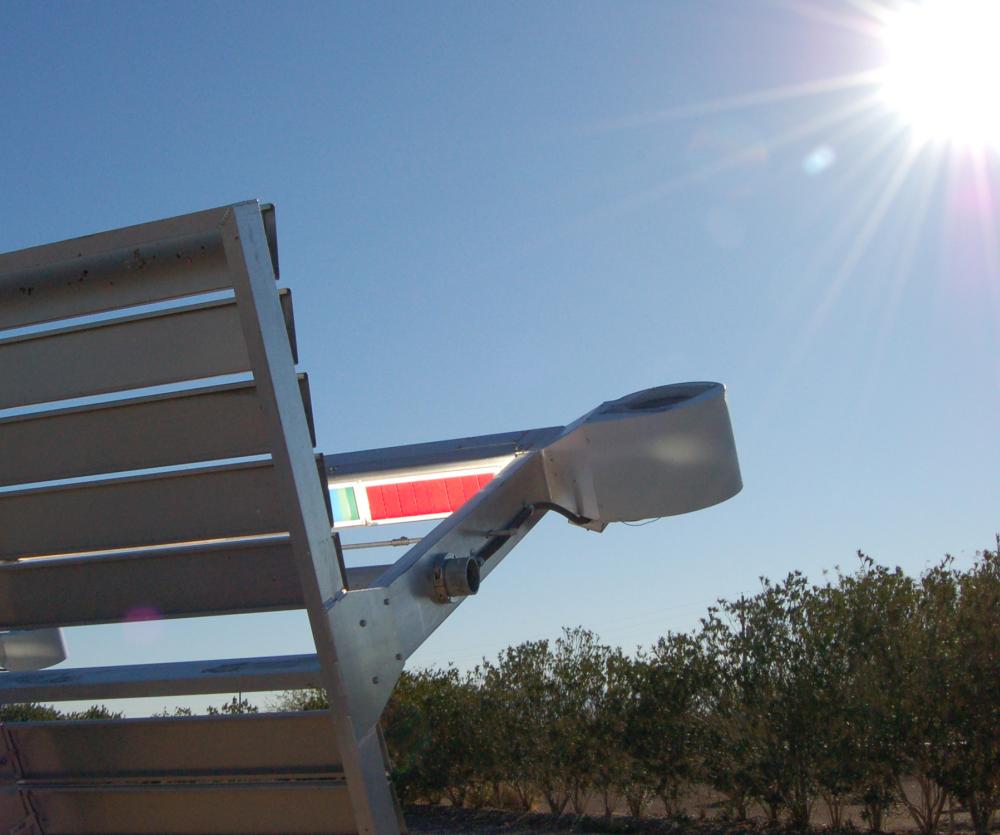
Applications
The Q-TRAC system is especially useful for testing durable products, including coatings, plastics and reinforced plastics, automotive materials, building materials, textiles, inks, sealants, fluoropolymers, and geosynthetics. Many correlation studies indicate that the Q-TRAC natural sunlight concentrator is particularly useful for testing coil coatings, powder coatings, automotive coatings, and even some high-temperature plastics.
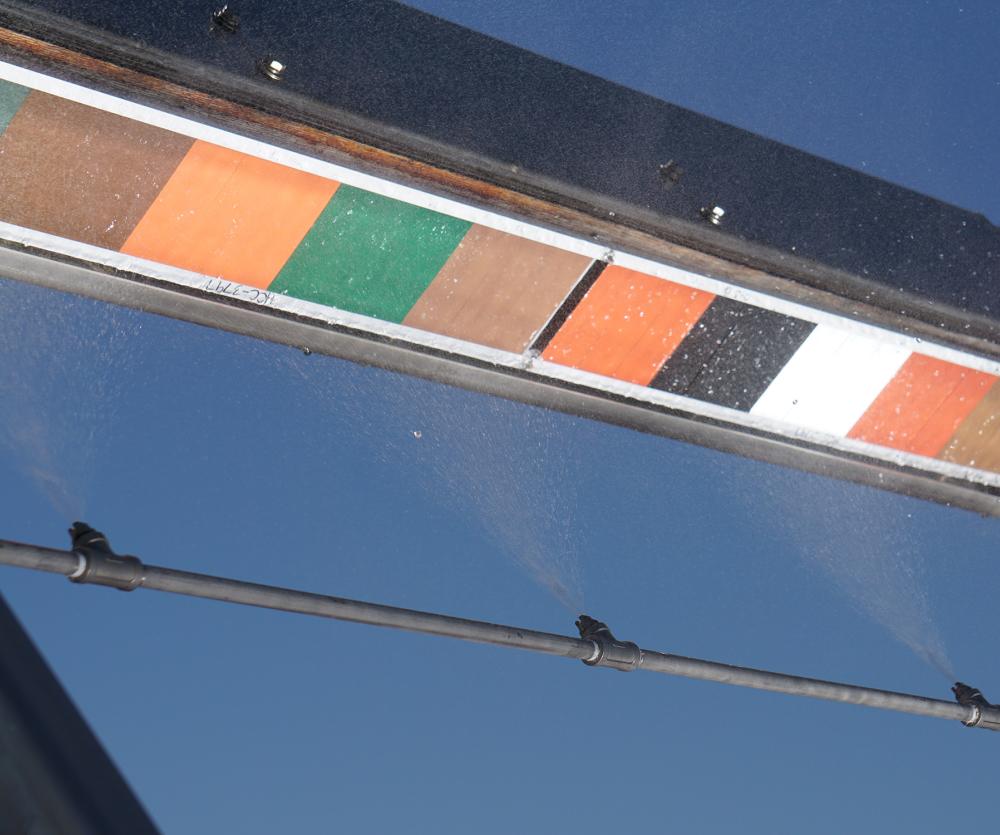
Test Methods
Standardised cycles – including desert, spray, freeze/thaw, and interior (behind glass) – are available to test different materials and end-use applications. Customised exposures also may be designed.
Q‑TRAC natural sunlight concentrator testing meets a variety of weathering and corrosion test methods, including ASTM G90, ASTM D4141, ASTM D4364, SAE J1961, and ISO 877-3. Visit the Q-lab Standards Page for a more complete list.
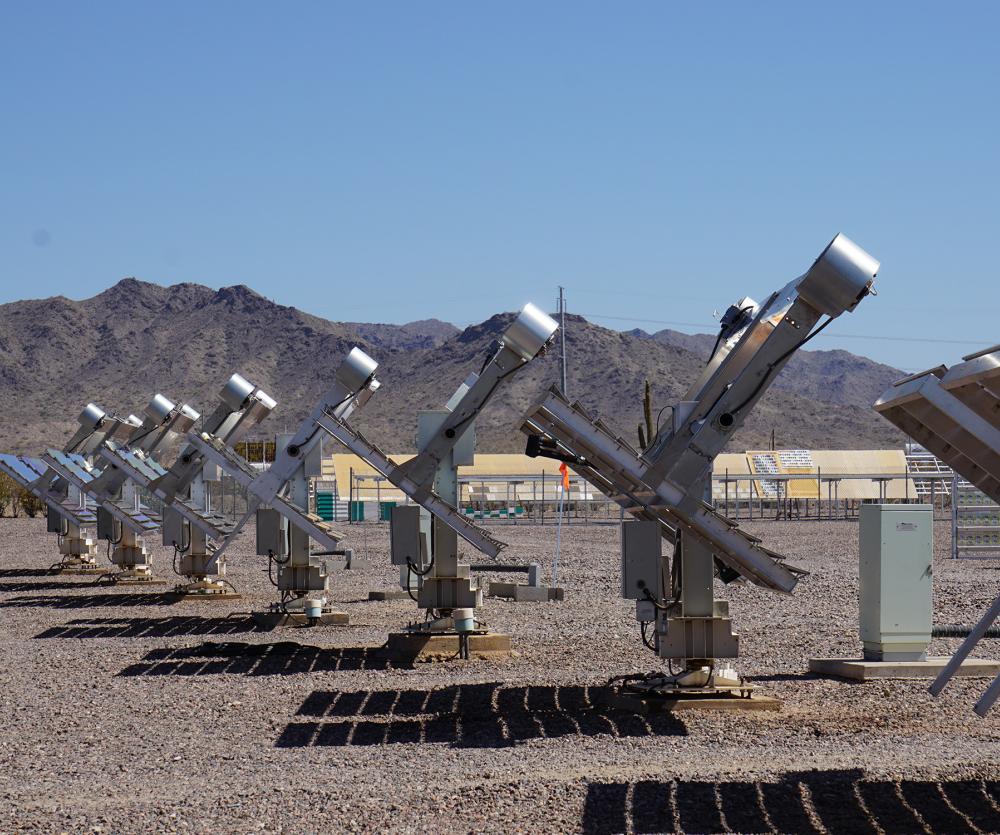
Cost-Effective
The Q-TRAC solar concentrator produces real-world results in a fraction of the time of natural exposures. This means that new formulations or products can be brought to market faster, saving time and effort. Additionally, Q-TRAC testing is extremely affordable – programs start at less than the cost of a cup of coffee per day.
Natural exposure testing is an essential part of any weathering and light stability test program. Even if you perform natural sunlight concentrator testing, you should also perform conventional outdoor testing.






